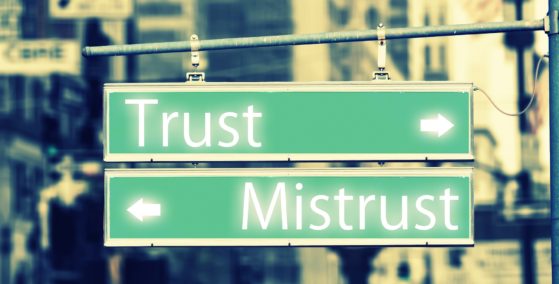Research has linked telling lies to an increased risk of cancer, increased risk of obesity, anxiety, depression, addiction, gambling, poor work satisfaction, and poor relationships.”
~Deirdre Lee Fitzgerald, PhD.
Clearly, lying is something we don’t brag about. Most of us value honesty. And many of us want – even expect – this from others. Then, what’s the problem? Why do we still lie? Why are we so dishonest – to others and to ourselves?

We are far from perfect as a species – so sometimes, we lie to fill in the gap – a lot. Lying is simply a condition of life and part of human nature – it’s a quick and dirty survival tool that provides immediate gratification or reward while also securing a sense of PROTECTION. And like all behaviors, lying exists on a spectrum, from harmless “white lies” to horrific and exceedingly consequential fabrications born out of greed, power, or shame. I can say, with confidence, that we are all untruthful to some degree. Not to burst your bubble or anything, but lying is just so common that I consider it “normal.” Feel free to prove me wrong – I’d love to meet a person who practices radical honesty and have been sober from any kind of lying for many years. But that is beside the point.
I know there are some of us that consider and pride ourselves on being truthful and honest – and that’s great! I’m definitely pro-honest. But, for most of us, we learn to leverage lies by honing our skills of deception and making it work for us – sometimes not realizing how consistent we’ve become. Think of the Dunning-Kruger Effect: people who are incompetent and lack knowledge in a field tend to massively overestimate their abilities because, quite simply, they don’t know enough to recognize what they don’t know. A 2002 study performed by psychologist Robert Feldman at the University of Massachusetts found that 60 percent of people lied at least once during a 10-minute conversation – telling an average of two to three lies. In addition, kids learn to tell lies as early as the age of two. So, let me correct my previous statement – not EVERYONE lies – everyone under the age of two are exceptionally honest!
Why Are We Dishonest?
Humans are natural liars. One might argue that there is an evolutionary component to lying. Lying is a sophisticated weapon – so sophisticated that we sometimes engage in self-deception and start living through them and creating extravagant lives out of them – e.g. denial. Lying acts as a defense mechanism. We use to avoid painful or negative consequences – to save face, to boost our self-esteem or our image, or to protect others’ feelings. Culturally, we are encouraged to be dishonest – as a means to be polite or courteous. So, instead of saying, “No, I’m actually on a diet and been very consistent with it,” we say, “Sure, I’ll have a piece of cake, it is your birthday.” These acts of people-pleasing, in and of itself, can be self-sabotaging and detrimental – especially if you find yourself over-accommodating for others at the expense of your own wellbeing. My point is, we are inclined towards making mistakes – and while most mistakes can genuinely lead to personal growth, we will instead choose to lie. WHY? Because our deep sense of need to be liked, loved and accepted by others is strong. We all want others to think well of us – so when we do things that we know is less than admirable or respectable (which happens), we tend to cover it up. So, this leads to another reason for lying: To get what we want — money, sex, drugs, material things, or attention.
Can you think of a reason for why you have lied in the past? Take a moment to reflect.
Takeaway: For the most part, lying involves intent and/or awareness – We intend to protect someone, protect ourselves, or perhaps even profit from a lie, and we know we’re doing it.

And since no one is above dishonesty, it then begs the question -“Who lies the most? What makes a person more of a prolific liar?”
Personality is one variable that accounts for lying. One study found that people who are high in what is known as the “Dark Triad” traits: narcissism, Machiavellianism, and psychopathy – basically, people who are manipulative, impassive, lack remorse, desire for prestige and status, or are indifferent – tend to tell significantly more lies than the average person. (If you’d like to understand more about the Dark Triad – take this sample personality test — *for educational purposes only). Another study found that prolific liars tend to be people who have low self-esteem. In addition, multiple studies found that people who perceive lying as an acceptable behavior tend to be more prolific liars. Other researchers have studied the demographic variables and found that more men than women were prolific liars. They were also relatively likely to be people who were in high-status occupations.
If you’re sitting there reading this thinking, “I don’t fall in any of these categories” – hmm, you might wonder, “am I lying to myself?”
Ultimately, what I really want you to take from this is that we lie because lying is EASIER than being HONEST. Admitting the truth, being honest, having integrity and allowing yourself to be vulnerable is absolutely terrifying and requires courage, self-awareness and discipline. And that is EXACTLY why I encourage the practice and embodiment of honesty – because it’s hard as f**k to do, which builds tremendous character.
The Benefits of Lying Less
Even small, white lies can rewire our brains – just like any habit that is formed over time. Essentially, the more you lie, the easier it becomes – even if you had initial guilt about being dishonest. The more you allow yourself to get away with it, the more you will naturally lie and strike again. The brain has the ability to adapt and mold itself through conditioning. Unfortunately, in this case, adaptation makes it easier to be dishonest. When lying no longer stirs up negative feelings, we are able to increase the magnitude of our lies. Then the additional, larger lies further deaden our sensitivity to the act of lying, and the slippery slope continues. In other words, we develop a disturbing tolerance to being deceitful.
“When we lie for personal gain, our amygdala produces a negative feeling that limits the extent to which we are prepared to lie,” said Tali Sharot, an associate professor of cognitive neuroscience at University College London. “However, this response fades as we continue to lie, and the more it (fades) the bigger our lies become.”
Consider this slippery slope – I really want you to take a moment to sit with this.
Have you ever been lied to? Betrayed? Do you know someone who is a pathological liar? Would you want to be around someone who tell “little” lies often? Can you trust someone who lies about something “small” to be honest about something much more serious and bigger? Like the fable, “The Boy Who Cried Wolf,” a liar is hard to believe, even when they begin telling the truth.
So, what are the benefits of lying less? Can living more honestly enhance your health?
A study conducted by Anita E. Kelly, PhD, professor of psychology at the University of Notre Dame, found that telling the truth can actually improve a person’s mental and physical health. This was a 10-week study with a sample size of 110 adults – between the ages of 18 and 71. Half of the group were instructed not to tell any lies for 10 weeks (although they were allowed to do other things such as omit the truth, dodge the questions, or make excuses). The other half of the group – the control group – received no special instructions. It was observed that efforts in lying less appeared to be linked to improved overall health.
Some of the results they gathered from the research:
Over the course of 10 weeks, the link between less lying and improved health was significantly stronger for participants in the no-lie group, the study found. For example, when participants in the no-lie group told three fewer white lies than they did in other weeks, they experienced on average about four fewer mental-health complaints, such as feeling tense or melancholy, and about three fewer physical complaints, such as sore throats and headaches, the study found. In contrast, when control group members told three fewer white lies, they experienced two fewer mental-health complaints and about one less physical complaint. The pattern was similar for major lies.
Overall, the study found that lying less significantly improved physical and mental health in the participants. They also found that the participants reporting their close personal relationships had improved along with their social interactions.
Self-deception or going against your own value system can also have similar emotional and physical repercussions as if you were lying to others.
Takeaway: Lying can lead to stress, sadness, and even depression. And, if you keep on lying, you desensitize yourself to emotional signals and callouses your conscience in deterring the act of lying. Lying has the potential to ruin relationships and make situations worse. However, not lying has a better impact on your relationships and other areas of life, which ultimately improves your overall health.
10 Reasons Why Honesty is the Best Policy

The saying that ‘Honesty is the best policy’ is one of the oldest in the proverbial book, but its longevity speaks to its wisdom.
Honesty does have long-term benefits at the expense of experiencing some short-term pain or discomfort – regardless of whether you are a kid trying to hide the fact that you spilled milk on mom’s expensive laptop or an adult trying to clarify why you have been more distant lately.
Here are 10 reasons why being honest is helpful:
- Honesty enhances authenticity. People crave authenticity. It’s very rare. Honesty helps dismantle the defensive walls of self-deception that we have around ourselves and allows us to accept who we are – leading us to naturally be more open up to others. And by presenting ourselves with a level of vulnerability, others appreciate that we are indeed human – we have faults, we make mistakes, and we’re not above ourselves. You would feel more congruent – harmony – as you expend less wasted emotional energy coming up with a lie. If you want others to know who you really are as a person, practicing honesty nurtures self-expression.
- Honesty decreases cognitive dissonance – mental discord that comes from constant contradictions and incongruency can have unsettling effects and compromises personal growth. Being honest with ourselves helps bridge the gap between the inconsistencies – what we do, what we think, what we feel, and what we actually believe – and bringing the truth to our own awareness, we can then decide how to create a sense of harmony – whether that’s to update our core beliefs or modify our behaviors to better match who we actually want to be.
- Honesty can improve your mental and physical health. Suppressing the truth about how we feel and think only resurfaces/manifest itself in some distorted way, either amplified or as stress in the body. As we saw in the 10-week study on honesty, the honesty group reported fewer mental-health and physical complaints — they felt less tense and melancholy and had fewer headaches or sore throats than the control group. Additionally, the honesty group also reported improved personal relationships.
- Honesty fosters trust. Renowned relationship researcher John Gottman examined focus groups of couplesfrom all over the country and discovered that trust and betrayal were the most important issues to arise between partners. Honesty is a reflection of your character, moral code and what you stand for – which shows that you are dependable and trustworthy (leading to our next reason).
- Honesty strengthens relationships. No doubt, honesty is a key component of a healthy relationship. It helps us avoid harmful breaches of confidentiality and allows us to make informed decisions that is based and built on a foundation of “reality” as opposed to “fantasy.”
- Honesty promotes open and healthy communication. Being honest is not only about telling the truth, but also taking ownership and accountability of your own thoughts and feelings. Studies show thatcommunication promotes positive engagement for couples and leaves them feeling more supported and satisfied in their relationship.
- Honesty boosts psychological safety. Honesty reduces anxiety and stress because trusting someone helps us feel safe and validated.
- Honesty builds courage and assertiveness. I’ve read somewhere that only about 20% or less of the population scored high on the scale that favors assertiveness – whether this is accurate or not, I can say that 90% of people I know are conflict-avoidant and nonassertive. But, we know that conflict, tension, and challenges is what helps us grow, transform and become better. Yet, we fear judgment – so some of us hide – behind lies, self-deception, silence, isolation, or superficial conversations. Honesty IS courage. So, if you value courage, honesty is a good step in that direction.
- Honesty unlocks a deep level of confidence in yourself. When you practice telling the truth, you stop “beating around the bush” and become unapologetically you. You learn to become more clear, direct, and bold in your communication. Most importantly, you will feel freer. Imagine that – no longer hiding behind facades, bogged down by the weight of hiding, and exhausted from pleasing others at the expense of your own mental health. Practicing being truly you is the absolute freedom. And just like any relationship, honesty is the key foundation to your inner relationship with yourself and your sense of self-worth.
- Honesty breeds leadership. Your word is your reputation. Saying what you mean and meaning what you say leads to credibility and respect. Also, the ability and willingness to give and receive constructive, honest feedback is important because truth and honesty allow for solutions to be applied to the necessary places to resolve and improve problems and situations. Great leaders do not stray or conceal the truth, but focuses on important matters.
Anything else you can think of? I’d love to hear it. Really.
And if that aren’t enough reasons for some of you – how about we try a modified version of the experiment from above? Go for two whole weeks without telling any lie at all – and we’re not talking about telling the truth, yet – just not lying. Document that how you feel – physically, emotionally and psychologically – and let me know your results.
For everyone else who truly values honesty, have felt the impact of honesty and would like to see more honesty in your life – move onto the next section.
The Practice of Honesty
It all starts with you. Honesty is a practice that moves inward and outward and outward and inward – in a constant flux. Honesty can simply be understood as the practices of both telling the truth and of avoiding deception by either omission or misdirection. How it looks in practice is a different story. And the truth is, as with most important matters, honesty takes time and practice – just like going to the gym: start slow – you wouldn’t start with a 200lb bench press if you’d never even benched before OR if you don’t have a personal trainer or a credible plan, you might end up hurting yourself. The same goes here with practicing honesty, start slow – and, by all means, don’t go appoint some aggressive, individual with no filter as your mentor in honesty. You might just get discouraged.

Here are some ideas to begin:
- Accept that you are imperfect and still learning – and that’s a beautiful thing. One of the greatest knowledge is learning that the more you know, the more you recognize how little you know.
- Start by reducing the urge to lie – whether it’s minor or major lies.
- Break the cycle by catching yourself in a lie. Simply, when you notice that you are pretending, lying, or acting inauthentically, just stop and take a moment to say to yourself internally: I’m noticing that I pretend to be (fill in the blank with), when I’m actually feeling (fill in the blank). For example, “I’m noticing that I pretend to be happy, when I’m actually feeling annoyed.” And just sit with that experience for a moment before you proceed.
- Share how your feel and think in the moment. Most of us spend our time speaking in past tense – about a past story or experience – g. what happened last week, yesterday or a year ago. We rarely share how we feel, right now in the present.
- Think out loud. Don’t be afraid to share some of your inner dialogue. We spend so much of our time in our heads, why not get out of it once in a while. It can be as simple as, “When you started crying, I was thinking how I wish I knew all the ways to alleviate your pain, but I have nothing.” As you can see, thinking out loud has the potential to build intimacy by revealing a level of vulnerability and provides clarity to others of who you are.
- Find a friend (or group) to tell the truth to once a week – sort of like doing a confession – let it out – take ownership and build self-compassion.
- Admit when you are wrong. Letting yourself slide only increases your blindspots over time leading you to get lost in your own efforts of deception.
- State the facts of your life. Make a list of all the lies from your past – and the people associated with the lies. Think of this as decluttering your storage space. This practice alone allows you to confront and undo any façade that you’ve been selling to others about yourself. We’re talking full on acceptance practice here.
- Be willing to make amends to the people from the list above (unless doing so would cause injury or harm to them or others). Start small here if necessary – e.g. “Hey John, I borrowed something from you when we were a child, and I told you I lost it, but really, I kept it. I’m not sure why – but I was just thinking about it and how ashamed I feel about it. So I wanted to let you know that.”
- Identify your intentions to yourself. Revealing your intentions to yourself will help remind you “why” you are doing what you are doing and can alleviate the pressure to perform. Many of us are running on autopilot and operating from a subconscious place – which I often refer to as the past self. If you are not present in the moment, you are most likely operating from past programs. So, before you step into a situation or an interaction, ask yourself: what are my intentions? Be honest.
- Practice being assertive by asking more directly for what you want or need. The scary part is always the response you “imagined” you might receive from another person. At the end of the day, it’s all just physiological sensations in your body. It’s important that you get over those sensations. I work with a lot of people who have social anxiety – and one of the exercises I have them do is to get rejected on purpose. The point of the exercise is to help them experience the rejection and feel it in their bodies so that they can learn how it actually feels (vs. how the imagine it to be) to deal with it head on and stop avoiding things. Fear holds many of us back from living an honest life. You don’t need to go out and get rejected – but start practicing more direct communication.
Honesty and Beyond
A lack of transparency results in distrust and a deep sense of insecurity.
~Dalai Lama
Honesty is a prosocial behavior – it falls in line with kindness, compassion, and other helping behaviors. But honesty isn’t always pleasant, and there is the odd occasion when it might not even be practical. And as much as I’ve preached the importance of honesty in all things, I know life is not that black and white – and it’s probably okay to tell a white lie about a not-so-great shirt or shoe. I do, however, encourage the practice of honesty and being proactive about it – especially when it comes to matters of the heart. I believe that by proactively being honest, we not only embody honesty as a value, but we also get better and better at expressing the truth – which ultimately and hopefully, diminishes or even eliminates any need to rely on a lie to fill in any gap. Exercising honesty is true freedom that allows us to break free of our blindspots and out of the prison of our minds.
And I can’t end this blog without mentioning Brad Blanton, PhD, who is an expert and well-known for his work on honesty – or in his words, “Radical Honesty.”
About Author
Albert Nguyen is a licensed psychotherapist in private practice. He specializes in providing an integrative and eclectic approach to mental health care that includes personal self-care, anxiety and depression, and peak performance in children, teens and adults. Reach out for more information on how he can be of service to you here.






